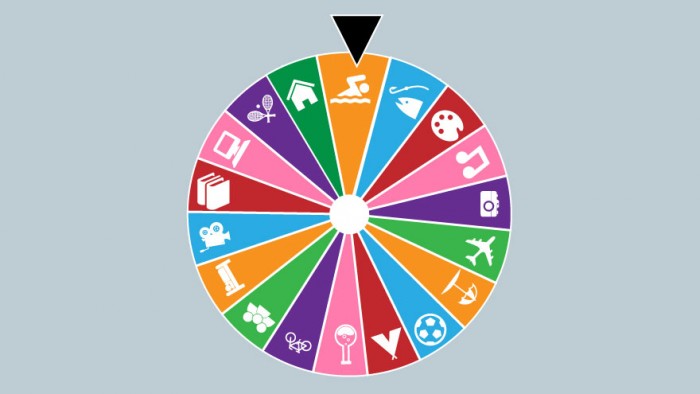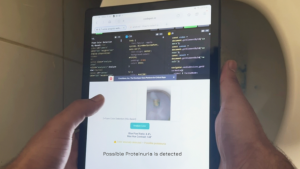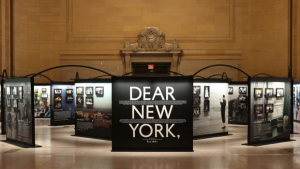As I’m writing this, I am listening to Max Hawkin’s Daily Random playlist on Spotify. It’s a playlist which randomly selects music from Spotify every 24 hours. Today’s playlist ranges from Eastern European instrumental music to what sounds like an infomercial podcast about “The Legal Requirements of Acupuncture Treatment.”
I recognise none of the songs or artists on the playlist and chances are that since there are over 30 million songs on Spotify, I would never have listened to these songs in my lifetime.
Daily Random is only one way that the computer scientist and artist Max Hawkins has tried to randomise his living experience. Three years ago, Hawkins worked as a software engineer at Google while living in San Francisco. Although this life was both comfortable and enjoyable, he began to feel disillusioned by the routine and bubble he was living in.
He told NPR last year that he “just started thinking about these loops that we get into. [...] And about how the structure of your life [...] completely determines what happens in it.”
What Hawkins is referring to is partly due to our current technological era. Online applications such as Spotify, Youtube, Facebook and others collect data on the music we listen to, the videos we watch and the events we attend. Then, they not only use this data for targeted advertisements, but also to recommend new experiences to us. However, these “new” experiences are contained inside the borders of our previous preferences. On the one hand this allows for personalised online interactions which cater to our likes and dislikes, but it also means that it is nearly impossible to break out of this digital bubble.
Hawkins describes this in a recent interview; “I understand from an engagement point of view why that would make sense, but I wish that these platforms would encourage people to be better versions of themselves rather than just reinforcing the things that they already know - to enable discovery rather than optimising for what’s for you.”
To mitigate the lack of discovery in his life, Hawkins left his job and handed over control to random decision-making algorithms. He coded algorithms which decided where in the world he should live for at least a month, which Facebook events he should attend, what music he should listen to, what he should eat, what he should wear, how he should spend his time, and most recently, what tattoo he should get.
One decision led him to drive over three hours to an intimate Christmas party in Fresno, California. He arrived at the house with a friend and a pie and after explaining to the host how they happened upon her Facebook event, she enthusiastically invited them in.
After his interview with NPR, Hawkins attracted a following of people who related to his frustrations with a routined lifestyle. He started a Facebook group where he would assign people random events to attend. One member, a woman over 70 years of age, was sent to a heavy metal concert.
Hawkins still has the main autonomy on his lifestyle and has at times taken breaks from the randomised living experience, which can be difficult to sustain, especially since he has to compromise on long-lasting relationships when constantly travelling. He also has some moral limitations, such as not attending funerals or support groups and refusing to get a tattoo with discriminatory connotations.
Hawkins may not maintain this lifestyle, but it has been an eye-opening experience which has forced him out of his bubble and exposed him to exciting possibilities he would not have come across otherwise.
The internet provides us with access to an immense supply of information and the opportunity to interact and keep in touch with every other human online. The globalisation of the internet ensures that not only those with the financial capacity to travel the world, have the ability to discover the world.
But the web applications which hold a monopoly over the internet were built to be addictive, not informative. Social media feeds us the content we already like because this way we are more likely to return to the site, giving the company further ad revenue and therefore a greater profit. Facebook even allows fake news to continue to be posted on the social media forum so as not to drive away the users which it attracts.
In this way, what started off as a medium to gain insight on the rest of the world, has become an amplification of our own beliefs and current environment. It may seem absurd that Hawkins is allowing an algorithm to determine his day-to-day experience, but all active internet users are unknowingly doing the same. The difference is that Hawkins’ algorithm might actually expose him to something new.
Read Next







